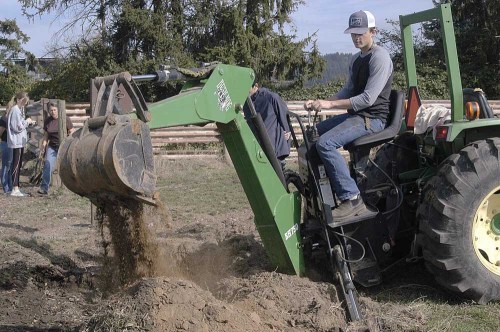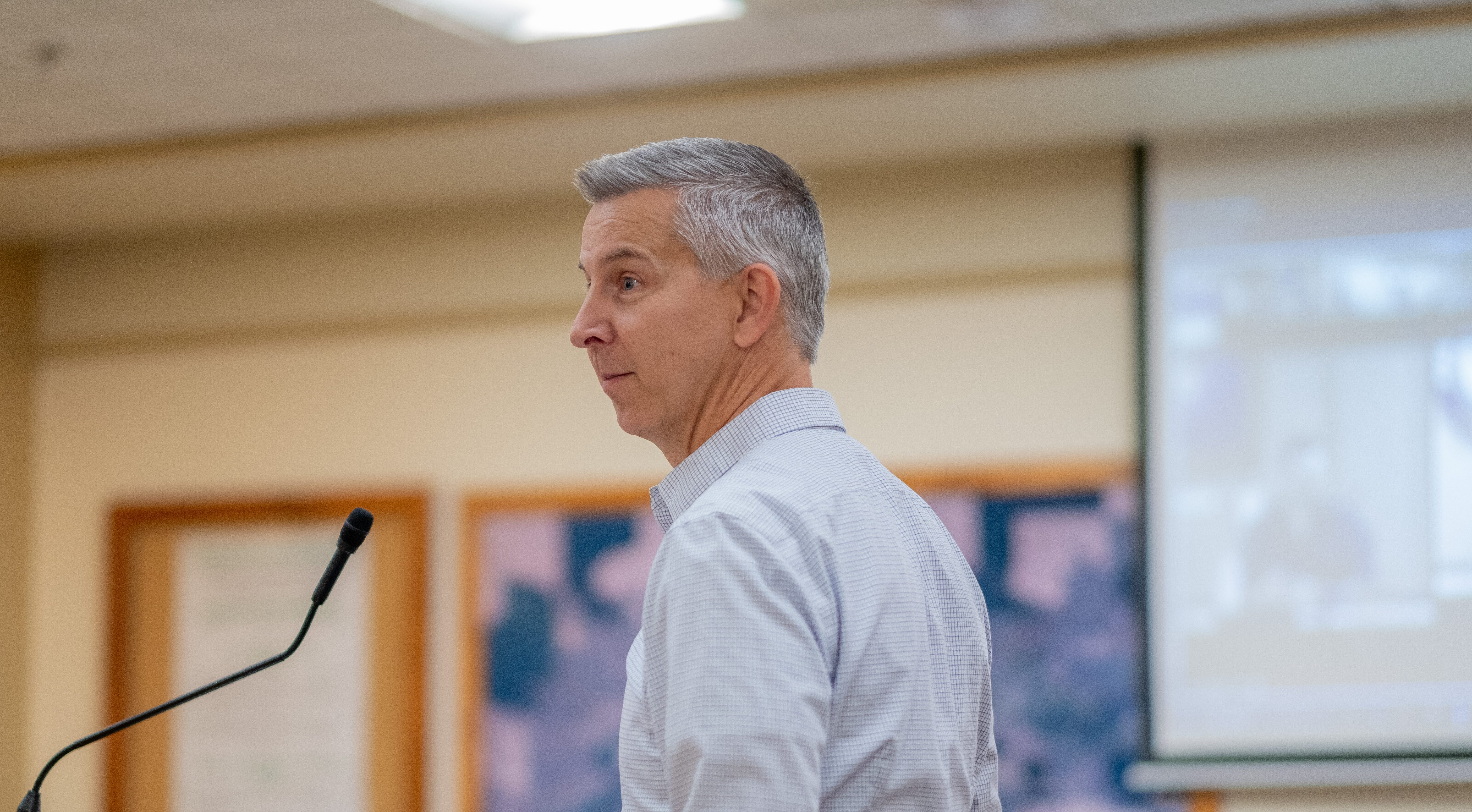Proposal would ease Oregon limits on teens using power-driven equipment
Published 8:00 am Thursday, February 23, 2023

- An Oregon high school student digs out a post as part of an agricultural training program. Lawmakers are considering easing Oregon's restrictions on older teens using power-driven machinery.
SALEM — Oregon lawmakers may take a page from the farm industry and allow older teenagers to operate power-driven machinery as part of their vocational training.
Schools and employers have encountered a “roadblock in minor labor laws” that’s hindering teens from learning skills needed in living-wage blue-collar jobs, which are increasingly mechanizing, said Rep. Christine Goodwin, R-Canyonville.
Trending
“We trust them to operate an automobile but not a weed eater,” Goodwin said during a recent legislative hearing.
Currently, 16- and 17-year old minors may use power-driven machinery to process agricultural commodities if they’re employed by a farmer and complete a safety training program.
Minors can also be employed in any role on farms that are operated by their parents, or on fishing vessels while supervised by a family member.
However, state youth programs offering career technical education have run up against a “disappointing dead end” for teens who cannot legally use necessary power tools and equipment, Goodwin said.
The age restriction for minors is also a problem for employers in wood manufacturing and other industries, who want to recruit workers proficient with power-driven machinery, she said.
“The demand for workforce extends beyond those family farms and fishing boats,” she said.
Trending
The exemption for agriculture and fishing has proven safe and successful, so teens could benefit from similar rules in other natural resource industries, Goodwin said.
“Many have an interest in doing work beyond fast food restaurants,” she said.
To help resolve the problem, Goodwin and 11 other Republican lawmakers have sponsored House Bill 2722, which would allow 16- and 17-year-olds to use power-driven machinery if they’re employed as apprentices or enrolled in a vocational training program.
The Willamette Educational Service District has submitted written testimony urging the House Business and Labor Committee to pass the bill, arguing it would help reduce the “significant barriers” that can prevent students from establishing a “career pathway.”
“Many of our business partners are hesitant to work with us to provide opportunities to students in the construction and manufacturing sectors because of the limitations in what work can be performed by 16- and 17-year-old youth,” according to Dave Novotney, the district’s superintendent.
Herbert Lumber Co. in Riddle, Ore., has found that job applicants commonly lack experience with power tools and power-driven machinery, as well as other skills needed in manufacturing, said Lynn Herbert, the company’s owner, in written testimony.
High schools have often eliminated wood shop and mechanics classes, leaving a “void” that could be filled by “teaching within the workplace” under HB 2722, Herbert said. “It would allow minors an opportunity for resume-building and real life experiences.”
The state’s Bureau of Labor and Industries neither supports or opposes the bill but believes it could be strengthened by better explaining how it relates to federal labor law, said Joshua Nasbe, the agency’s legislative director.
As introduced, HB 2722 requires its provisions to be interpreted in a manner consistent with the Fair Labor Standards Act, but it could be improved by specifically explaining what state law will allow, he said.
Oregon’s statutes currently appear to be more restrictive for minors using power-driven machinery than federal limits, which exempt training and apprentice programs, but state rules are pre-empted from being more lenient, Nasbe said.
“You couldn’t by state law authorize something that’s prohibited by federal law,” he said.









